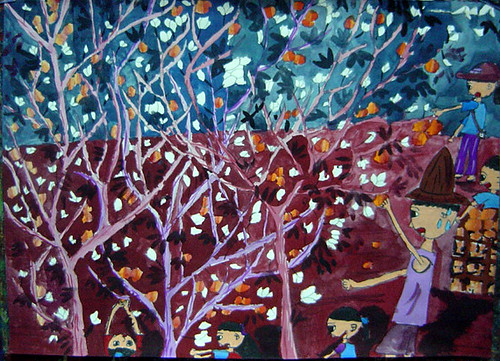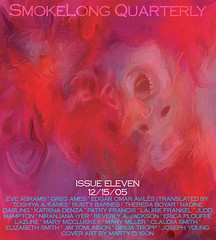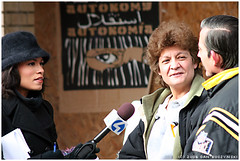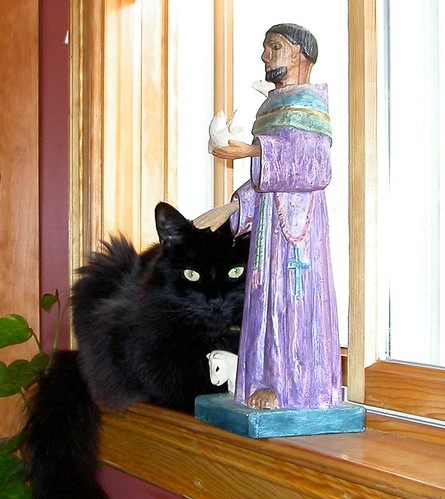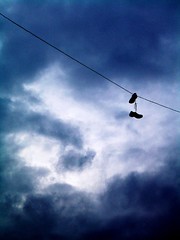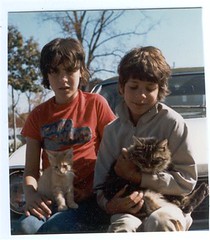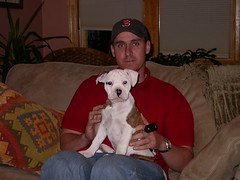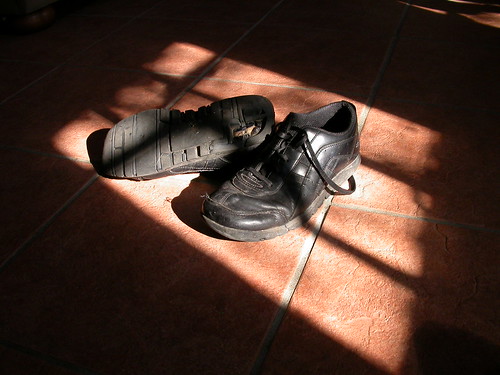
Every other Sunday
Originally uploaded by aliasgrace.
It was last March when I first happened upon Blogger. Looked kind of fun, and easy, too. I began typing in information on my computer.
BLOG NAME? the computer asked. Hmm. I thought of one of my favorite poems by Goethe:
THE SECOND POEM THE NIGHT-WALKER WROTE
Over the hilltops,
Silence,
Among all the treetops
You feel hardly
A breath moving.
The birds fall silent in the woods.
Simply wait! Soon
you too will be silent.
I'd call it THE NIGHT-WALKER! I typed the words with abandon, but then I started to get kind of creeped out. "Night walker" probably sounded romantic to Goethe, but it shared too much assonance with one of the terrors of our time--the night stalker. I imagined some lonely guy in a trench coat taking possession of my blog.
Or maybe the night-walker was a desperate woman wearing garish make-up who had stopped allowing herself to feel long ago. Nah, as much as I enjoy, well--walking at night--I didn't think I'd call myself an actual "night-walker". I pressed the delete key just in time, but I wasn't about to give up on the poem. The poem was my mantra, my daily reminder; I could never read it without feeling a little more alive. I typed in my URL address, naming my street after the poem's pointed exhortation.
Then I second guessed myself again. Simply wait? What kind of blog name blog was that? I opened a nearby book to a random page to a poem by Rumi. A line about a Marvelous Garden that yielded apples and pears out of season caught my eye. That would work. And besides, it didn't really matter what I called the blog. I was only playing around. My days were too full as it was. I certainly didn't have time to put much energy into blogging.
If only some of YOU had been around to warn me about the addictive nature of the game I'd begun. I posted something short, and felt a rush of the old pleasure I always felt when I had something published. But this time I'd done it myself! I showed my husband and my kids and a couple of my friends. Lookie! My very own blog. I posted a few times, but still had no idea what I wanted my blog to be. If anything.
And then an amazing thing happened. Someone read it, and left a comment! Someone I had never met before, someone who lived on the other side of the country, and had no reason to care what I thought, or what poems moved me, or the wild stories I brought home from my waitressing job. But she did. It was Diana from Seeking Clarity, and I still have no idea how she happened upon my blog, but by her generosity in leaving a comment (and yes it is a generosity), she pulled me out of my solitary nightwalking and into a world of community.
Once it was a real blog, I realized the Marvelous Garden was not the right name. Had never been the right name. For one thing, who was I to call the scruffy and overrun garden that is my private world "mah-velous?" I wanted to reclaim my original title, but thought it was too late. I was already linked in various places. I couldn't just change my name, could I? Then one day I went to visit the LUCID MOMENT, and found it had become THE COFFEE SUTRAS. And really, it was no problem. I could leave my link the way it was, and it would still lead to Kurt's illuminating blog. Or if I was ambitious, I could change it, but I didn't have to.
A week later I took out the poem and read it again before I made the change. Did I really want to name my blog after a poem about death? Did I want to greet the world with the unspoken message "Simply wait--you're gonna die soon"? Was that the best I could do?
I read the poem again, and decided that there was nothing morbid or threatening or ugly about the death that Goethe was describing. It was, quite simply, the ultimate reality. As real as the trees and the hilltops and the birds that rested in the stillness of their branches. You can pretend it's not there and place way too much importance on things that don't matter at all. Or you can look fearlessly into Goethe's bright and beautiful night and make the most of every breath you take.
Simply wait.




